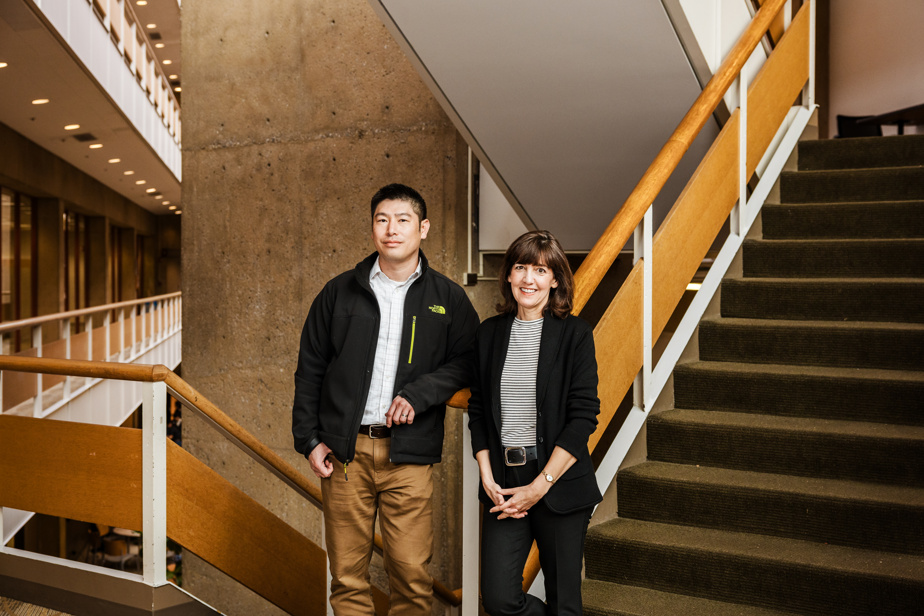Last December, as students learned about the new artificial intelligence tool ChatGPT, fears that it would create a tsunami of cheating spread across the United States.
To counter artificial intelligence (AI) plagiarism, some major American public schools quickly blocked ChatGPT on their computers and Wi-Fi networks.
This fear was perhaps exaggerated, at least in high school.
According to a study by Stanford University, the arrival of AI has not increased the rate of cheating in schools. In a survey of 40 U.S. high schools this year, 60 to 70 percent of students reported recent cheating, about the same as before, Stanford education researchers found.
ChatGPT, launched by San Francisco-based OpenAI, made a splash in late 2022 with its ability to write human-sounding text and emails. Supporters of technopedagogy immediately claimed that ChatGPT would revolutionize education. In contrast, skeptics warned that such tools – capable of both good and bad – heralded an era of widespread cheating and misinformation in schools.
A year later, the Stanford study and a Pew Research Center report challenge the idea that AI is disrupting education.
According to Pew, many teens are barely aware of ChatGPT. Most say they have never used it for their homework. This could obviously change, as they become more familiar with AI tools.
This fall, the Pew Research Center surveyed 1,400 U.S. students ages 13 to 17 about their knowledge, use, and opinions of ChatGPT. The results are surprising, given the alarmist headlines from spring 2023.
Nearly a third of teens report hearing “nothing at all” on ChatGPT; 44% say they have heard “a little” about it; only 23% say they have heard a lot about it. (The Pew survey, conducted from September 26 to October 23, 2023, did not address other AI robots like Google’s Bard or OpenAI’s GPT-4).
Responses vary depending on certain factors and family income: 72% of white people say they have heard of ChatGPT, compared to 56% of black people. Three-quarters of teens from homes with an annual income of at least $75,000 say they have heard of ChatGPT, compared to just 41% of teens from homes with an annual income of less than $30,000.
The Pew Center also asked teens if they had ever used ChatGPT for homework. Only 13% said yes.
The Pew survey results suggest that ChatGPT, at least for now, is not the disruptive phenomenon its supporters and detractors expected. In the subgroup of teens familiar with ChatGPT, the vast majority – 81% – reported not using it for school work.
Cheating at school is nothing new. Surveys of more than 70,000 high school students between 2002 and 2015 found that 64% had cheated on an exam and 58% had plagiarized. According to Stanford researchers, the arrival of ChatGPT did not increase the level of cheating confessed by these students in 2022.
At University ? We do not know. The Stanford and Pew researchers did not survey postsecondary students about their use of AI tools.
This year, Stanford researchers added specific questions to measure high school students’ use of AI.
Of those who used an AI tool, 55% to 77% did so to generate an idea for a school assignment; 19% to 49% used it to edit or complete part of a work; and 9% to 16% used it to write an entire school assignment, according to new Stanford data.
These results could shift the debate on AI in the classroom, so that we talk less about potential cheating and more about helping students understand and critically use new AI tools, the researchers said.
While schools are still working on rules for acceptable use of AI tools, students have nuanced views on ChatGPT.
Only 20 percent of students ages 13 to 17 consider it acceptable to use ChatGPT to write essays, Pew found. But almost 70% consider it acceptable to use it to research new topics.
This does not mean that students never try to sign and deliver texts generated by an AI robot.
According to Christine Meade, a high school history teacher in Vallejo, California, AI cheating was widespread among 12th graders last spring. She even caught a few using AI bots on their smartwatches during exams.
But this year, after allowing her students to use ChatGPT and Bard for some research, the situation “completely changed,” she says.
“I had a group of students use AI robots to generate a list of events that happened right after the Civil War in the 1880s,” Meade said. It was pretty accurate, with one notable exception, when a student got the century wrong and named an event during the administration of President Ronald Reagan, during the 1980s.
